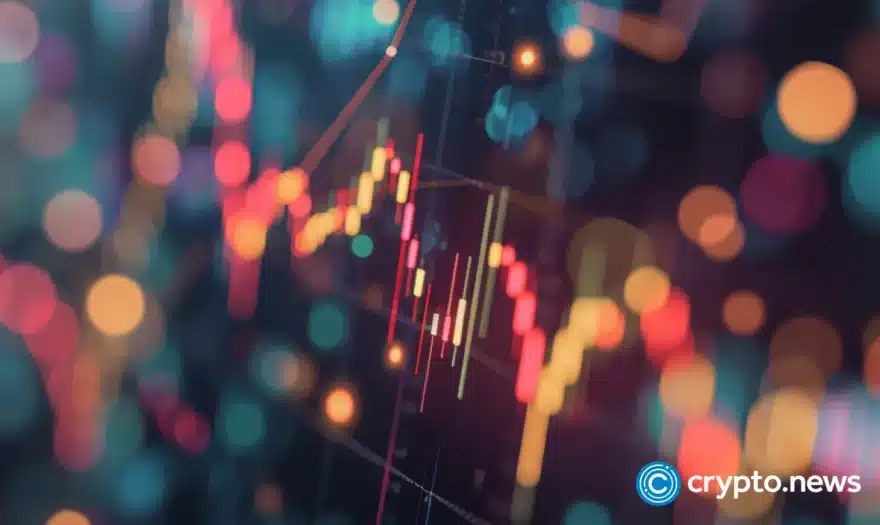How Blockchain Technology Can Drive Social and Economic Responsibilities in Agriculture

The agriculture sector is one of the most important industries in the world, with an annual turnover of over $1 trillion, about 1% of total GDP in the United States. However, it is also one of the most inefficient. Many factors contribute to the inefficient and costly supply chains of agricultural businesses. Besides the lack of transparency and an outdated accounting system, other issues such as the overpopulation of products and the lack of control over the logistics process are also common. The only technology that can address these problems is blockchain.
Driving Social and Economic Responsibilities in Agriculture
Blockchain technology provides a chance to drive social and economic responsibilities in agriculture. Here are the factors that blockchain can assist in;
Fairer Payment for Farmers
While trying to grow different types of crops, farmers often face unpredictable weather conditions. Excessive spring rains or droughts could affect plant growth and harvests. Usually, this information is only available to the farmer and food producers. Then, it leads to higher prices and unclear supply chain transactions.
Through blockchain technology, farmers and other stakeholders can get a deeper understanding of the prices of food products through real-time data. That will allow them to make informed decisions regarding their operations and pay the farmers more fairly. In addition, through smart contracts, they can quickly get crop insurance claims.
Controlling Weather Crisis
While preparing for the harvest season, farmers often face unpredictable weather conditions that may affect farm produce. In the US, many crops are unable to tolerate excessive spring rains. The lack of oxygen levels in the soil makes it difficult for plants to perform their usual functions, such as respiration and water uptake.
The lack of transparency in the food chain can lead to high surge pricing and unclear pricing. Consumers don’t know when the crops were affected by the harsh weather conditions, which can cause the price to increase.
Through blockchain technology, farmers and other stakeholders can understand the prices of food products in the market. Hence, they can make informed decisions regarding their crop insurance claims.
Agricultural Cryptocurrency
In the agriculture industry, transaction fees, inflation issues, and long waiting hours for approvals across the food chain are often issues. Blockchain can offer a solution for this menace as it is the technology behind cryptocurrencies.
For instance, its founders explicitly developed PavoCoin for the agricultural industry. Folks in the industry can use this currency to make payments throughout the system. It provides a secure and convenient payment method and helps speed up customer interactions.
Transparency
The agricultural industry has often had issues with food safety. Due to the emergence of blockchain technology, customers can now access the information they need about the food they buy. This information is secure and accessible to anyone.
Food producers can place QR code labels on packaging materials to allow consumers to check the animal’s living conditions and other details. For instance, if a QR code label is on a beef package, the consumer can confirm that the animal lived in a secure environment.
Prevent Counterfeiting of Raw Materials
Farmers’ seeds and grains must be of high quality to deliver healthy produce. Unfortunately, many small and large farms cannot afford to buy the quality products they need due to the lack of funds.
Through blockchain technology, both big and small farmers can now benefit from the system. That will allow customers to see the quality of their suppliers’ seeds. It will also help them make informed decisions when it comes to purchasing. Not only will this information be used by customers, but it will also benefit the farmers.
The extension uses blockchain technology to give farmers transparency and allow them to locate their products in real-time. It also allows users to check their food sources and ensure that the products they purchase are of the highest quality.
Product Quality Control
In developing countries, fruits and vegetables are often thrown away due to improper transportation and storage. Around 34% of these products are unsuitable before producers can sell them.
Due to the lack of control over the various temperature, humidity, and CO2 indicators, the supplier, the farmer, and the freight carrier must have the necessary tools and resources to monitor these conditions.
A blockchain solution can help track the transportation and storage of agricultural products. Users can collect real-time data about product conditions through a decentralized distributed ledger. Through this process, stakeholders such as the consumers, retailers, and farmers will be able to monitor the quality of the products and prevent them from going bad.
Improving Food Production
The combination of blockchain and the Internet of Things (IoT) can make farming more efficient. Through both technologies, farmers can now benefit from new opportunities in the field. For instance, by collecting data from the sensors in the area, they can improve the efficiency of their operations.
Through this process, farmers can improve their management and save money by identifying their actions and developing patterns for the future.
Improving Environmental Sustainability
Smart agriculture uses natural resources and modern technologies to reduce environmental impact and improve production efficiency. With the help of blockchain, it is easier to implement sustainable practices.
For example, the digital ledger is a secure system that allows people to store and manage their data. The agriculture industry can use it to protect against cyber attacks and corruption. With blockchain, all of its information is unchangeable and secure.
Improving E-Commerce Agriculture Business
One of the most important factors businesses need to consider when building a successful e-Commerce business is establishing trust with their customers. Producers can use blockchain technology to keep their data safe and secure.
Through blockchain technology, small businesses can easily access the online marketplace for their products. That eliminates the need for them to go through multiple steps and allows them to focus on their core business. In addition, it will enable them to conduct seamless transactions.
Fair Produce Pricing
Various factors affect the price of agricultural products, such as the weather conditions and the supply and demand of raw materials. This move reduces farmers’ income while retailers and intermediaries accumulate the most profits.
Blockchain technology can help improve the transparency of the agricultural market by reducing the number of intermediaries and increasing farmers’ profitability. It can also help them enter into contracts with retailers on favorable terms. In addition, blockchain can help the market be more social by allowing the authorities to exert pressure on those who make excessive profits.
Food producers can carry out this strategy through the use of eco-organizations, which are proven to be effective. Farmers can also establish an international trade union using blockchain technology.
The increasing profitability of farmers can help boost the income of many people in developing countries hence reducing the poverty levels.
Transparency in Agricultural Subsidies
Although the government provides the money, the budget for the program from the normal citizen taxes still provides the program’s budget. The lack of transparency surrounding the subsidies is one of the main reasons people cannot make an informed decision regarding the program. In many cases, the more prominent groups receive more than the smaller ones.
Through blockchain technology, the government can increase transparency in the agriculture market by allowing the public to monitor the activities of the subsidy programs. The public can gauge whether the government is using the funds correctly.
Better Accountability for Enterprises
In addition to using illegal labor, multinational companies also use harmful chemicals to preserve their products. In many cases, large corporations can still abuse and neglect livestock. That shockingly shows how they can still get away with doing this. The lack of transparency regarding how these companies handle their products has caused the public to lose trust in them.
Through blockchain technology, agricultural companies can improve transparency by giving the public more information about their operations. This move can help them make informed decisions regarding the quality of their products.
Bonus Payment From Consumers to Farmers
One of the most significant advantages of blockchain technology is that it allows consumers to tip the farmers directly. That eliminates the need for intermediaries and will enable consumers to see who is responsible for the products they consume. Through blockchain, consumers can also see the history of the product and who is responsible for it. Farmers’ wallets can keep track of their customers’ tips through this feature.
Incentivizing Sustainable Practices
Despite the various practices that aren’t sustainable in the agriculture industry, many of these still exist. For example, overlying pesticides can lead to the contamination of drinking water and other aquatic resources. This issue is very harmful and can lead to various health problems. Without proper practice, this type of practice will continue.
The government can incentivize the agricultural market through blockchain technology to encourage farmers to adopt sustainable practices. That can help prevent the use of harmful chemicals. In developing countries, an incentive feature can help farmers reduce their use of chemicals. That can also encourage them to grow more organic food.
Corporate Responsibility
When making your weekly trip to the grocery store and spot some tomatoes you would like to purchase, you don’t know much about their origins or how it was cultivated. You also don’t know who grew it, how they stored it, and whether it has any strange DNA.
However, through the blockchain, people interested in learning more about the various methods used to grow crops, livestock, and fish will be able to track their history. For instance, they can check the history of corn from the shelf at the store to the seeds.
You can also track the history of salmon from the time the supermarket froze it to the farm where it was grown. This move lets you know everything about the farm’s operations and chemical composition. Companies such as Brandmark are already providing tracking services for food products.
Streamlined Operations
The potential of blockchain technology to improve the efficiency and effectiveness of the supply chain of every company is immense. It can help automate and manage the various processes involved in an organization’s logistics and supply chain.
The ability of blockchain technology to cater to various stakeholder groups is one of the main reasons why it is considered a powerful tool for improving the efficiency of the supply chain.
Companies Already Working to Implement Blockchain Technology
Here are some companies implementing real-life use cases of blockchain technology in the agriculture industry.
Anchor
New Zealand-based Anchor is a dairy product brand that uses blockchain technology to improve the transparency and traceability of its supply chain. Their goal is to create a more secure and reliable trading environment.
Unilever
Unilever, a consumer goods company, has used blockchain technology to reduce deforestation by implementing transparency and traceability in its supply chain. The company previously used blockchain to improve the efficiency of its data collection and verification processes.
Demeter
Demeter is a new smart agriculture marketplace that aims to provide modern technology solutions to the agricultural industry. It focuses on developing and enabling next-generation businesses.
JD.com
China’s e-commerce giant JD.com is currently testing blockchain technology to track the origin of its beef products. It’s working with Australia’s InterAgri to get the beef from its farms. Through this process, the company aims to improve the efficiency of its operations and manage the farming process.
TE-FOOD
The TE-FOOD platform is a blockchain-based solution that enables the exchange of public data regarding the global food supply chain. However, it requires additional security measures to validate and collect data.
What the Future Looks Like for Social and Economic Responsibilities in Agriculture
In the next few years, various factors will drive the development of new agricultural products and services. These include the increasing number of people and the need for innovation.
In the meantime, one of the most modern ways to improve the efficiency and safety of agriculture is through blockchain technology. As discussed, various players in the agricultural field can use this technology to address issues such as food safety and quality, weather monitoring, and more that assist in social and economic responsibilities.
Currently, there are few companies that are providing blockchain services for farmers and food producers. However, this might change as time goes on and more people are exposed to the blockchain industry.














